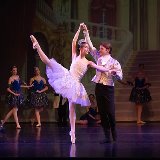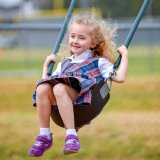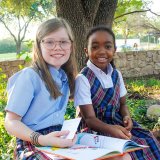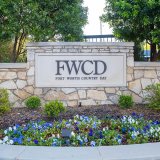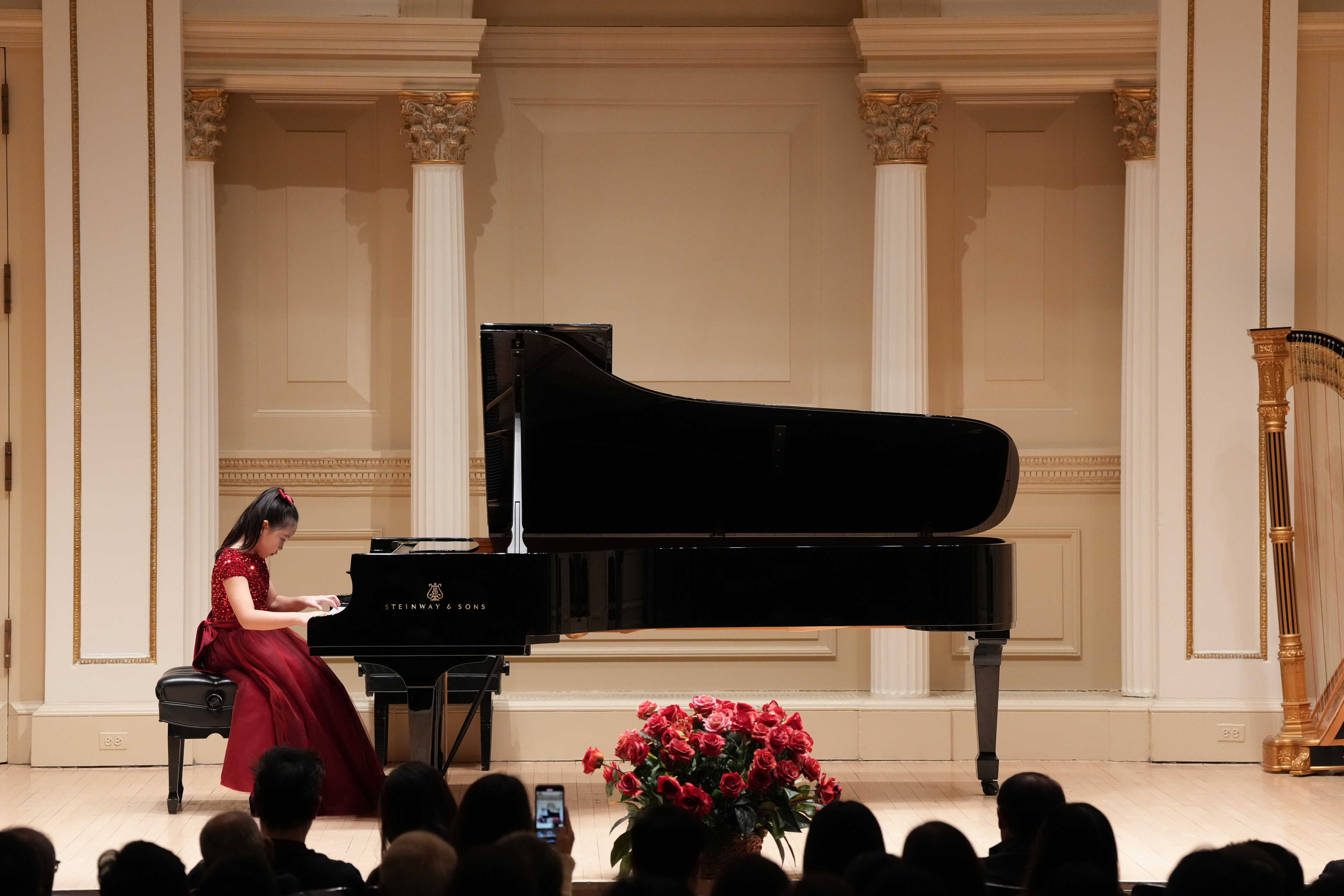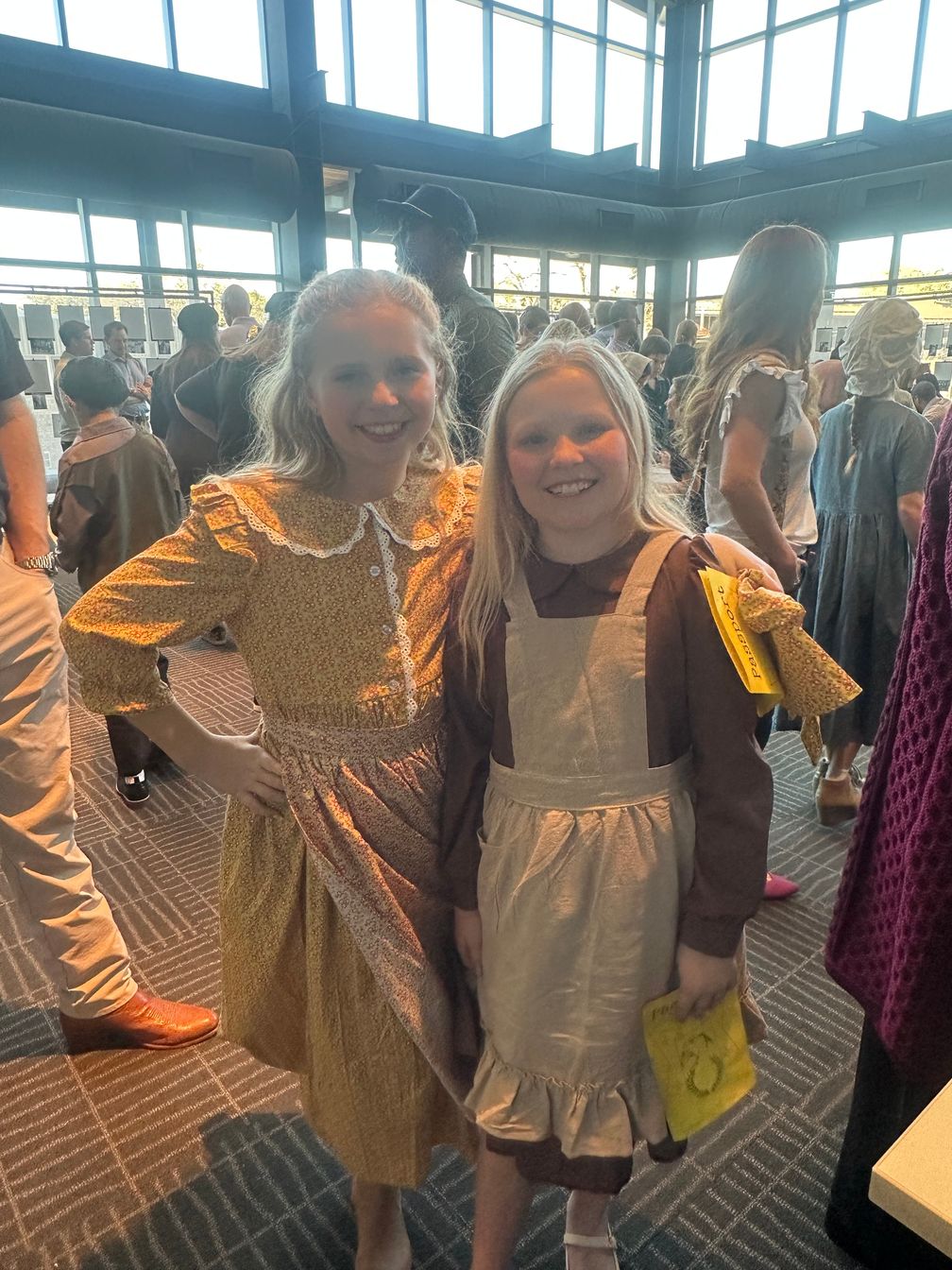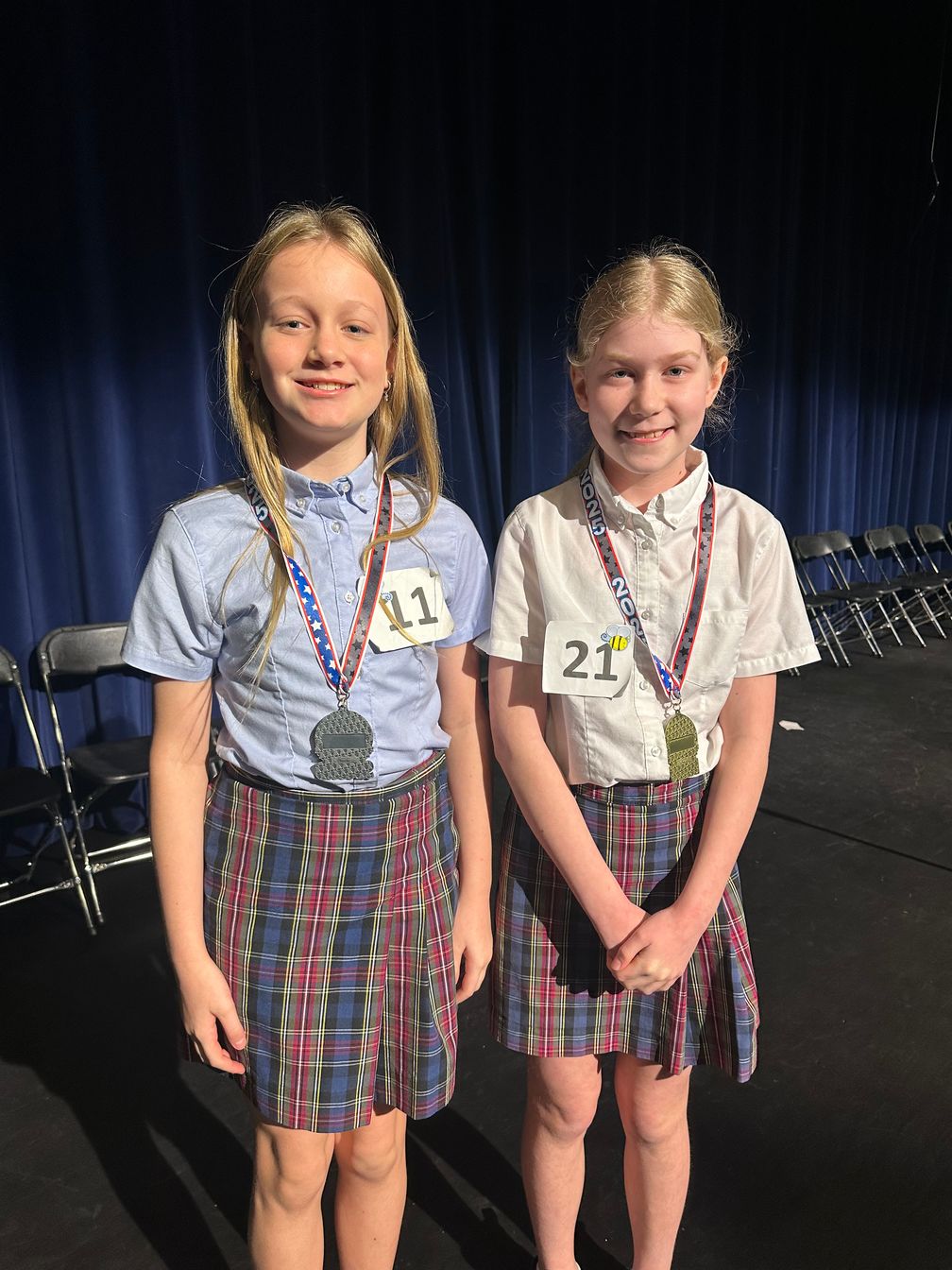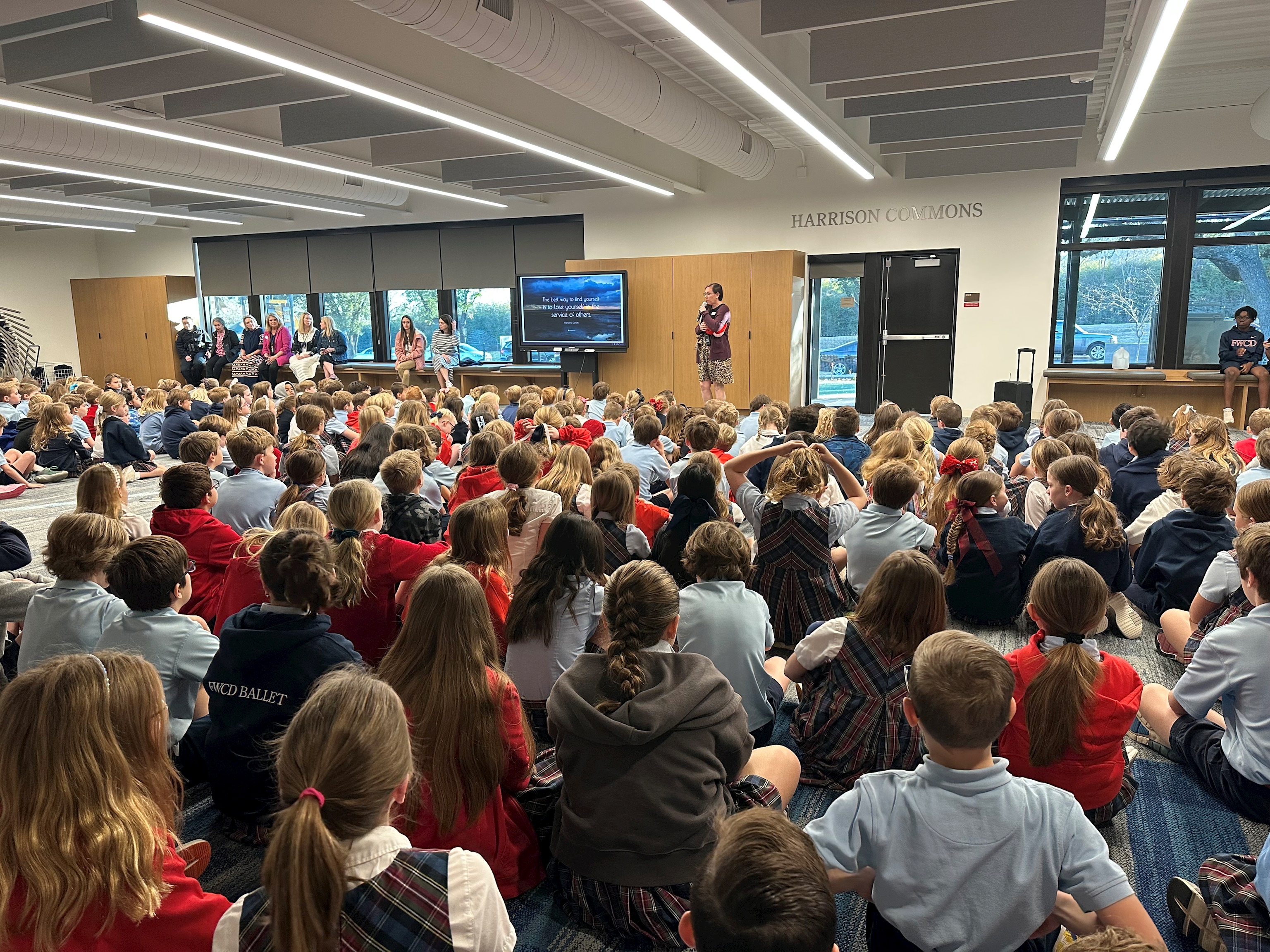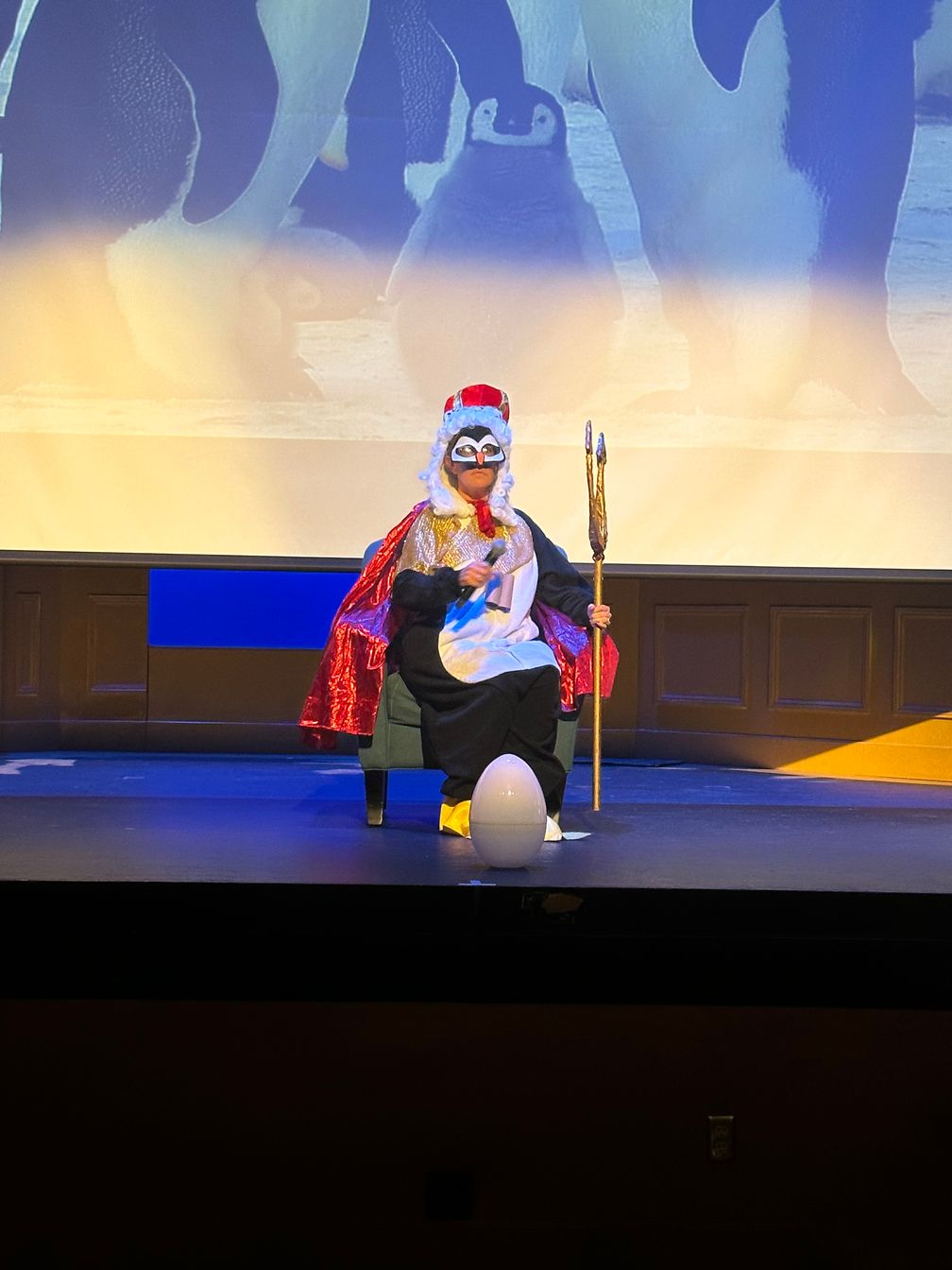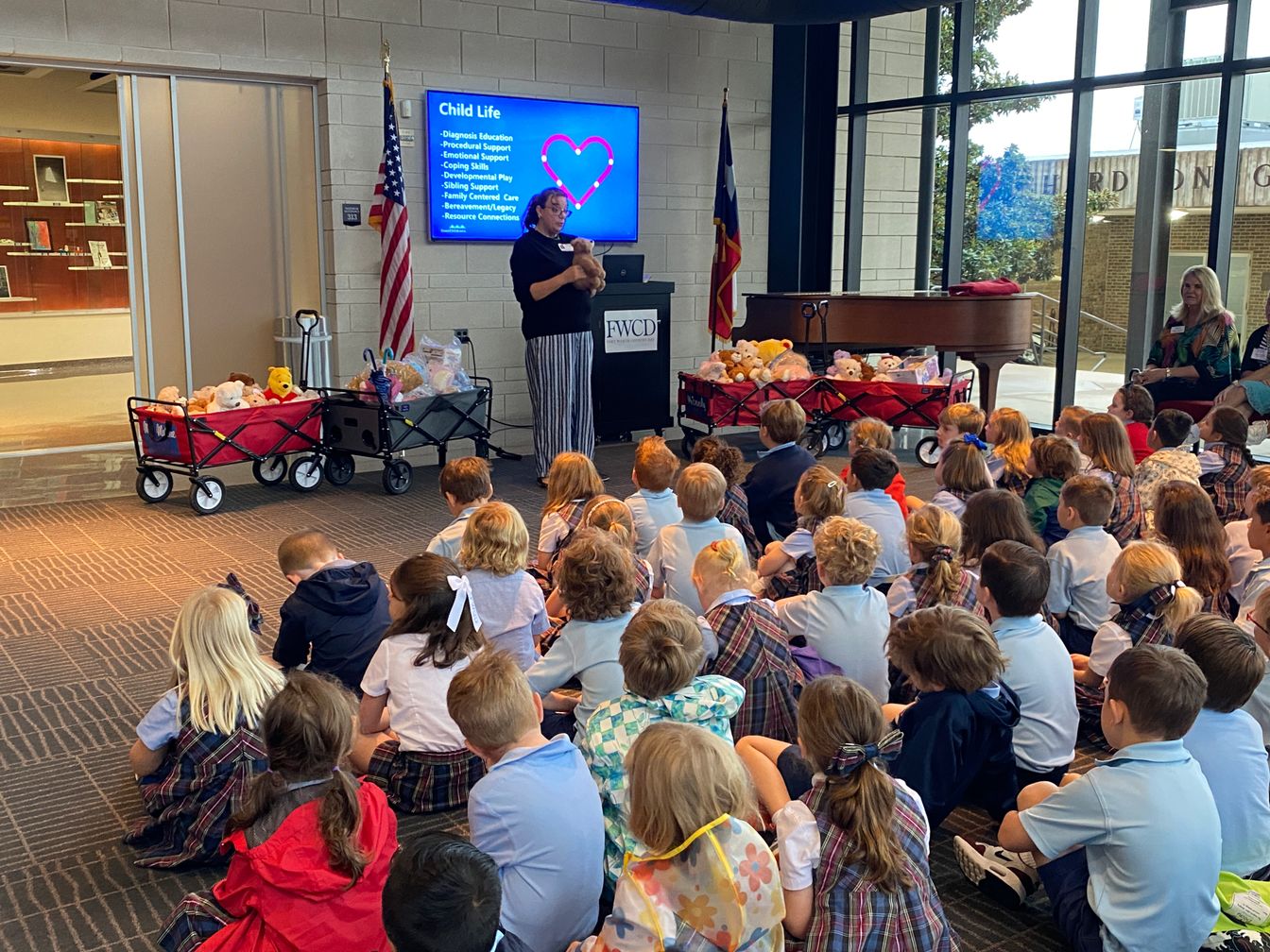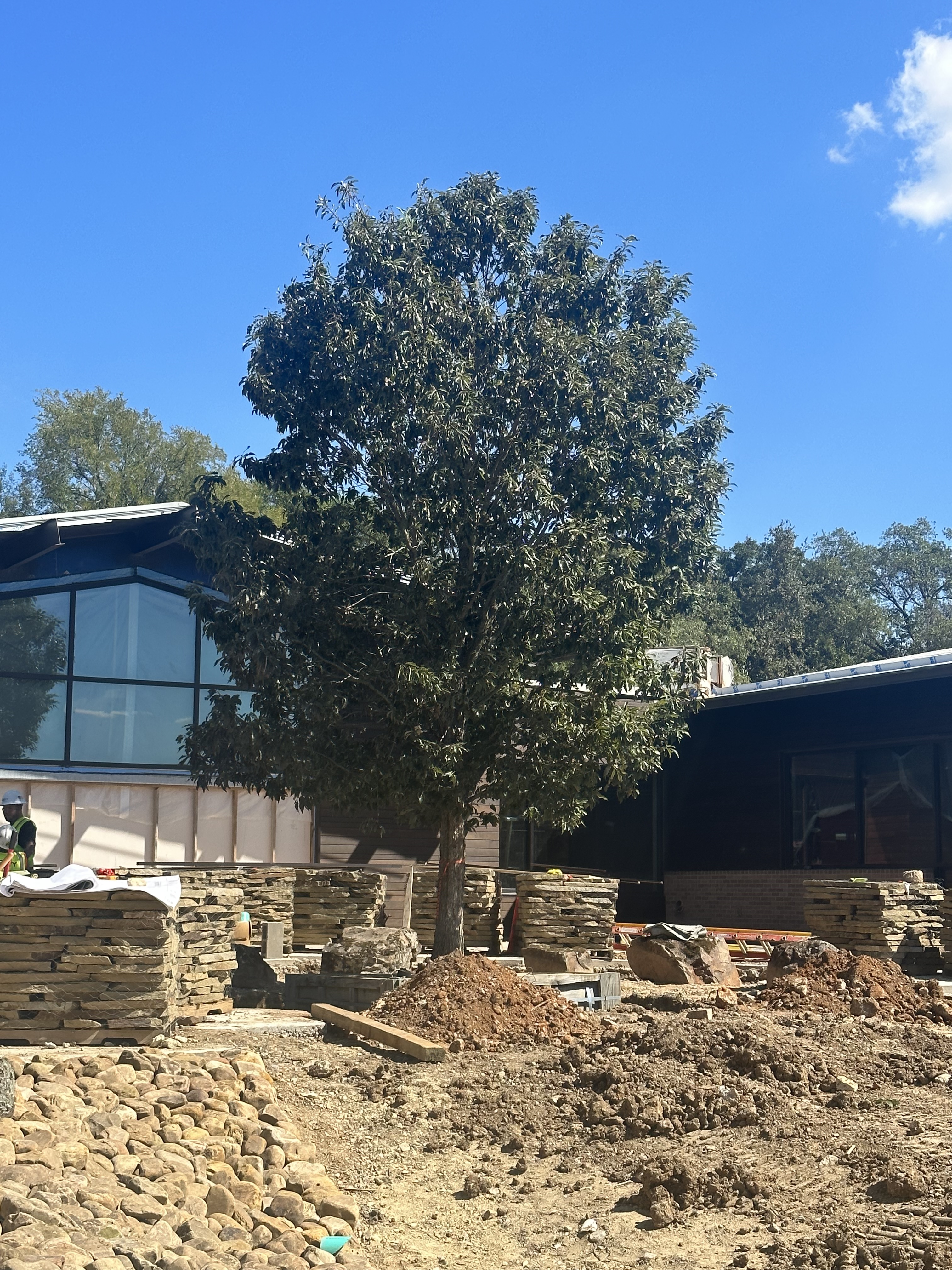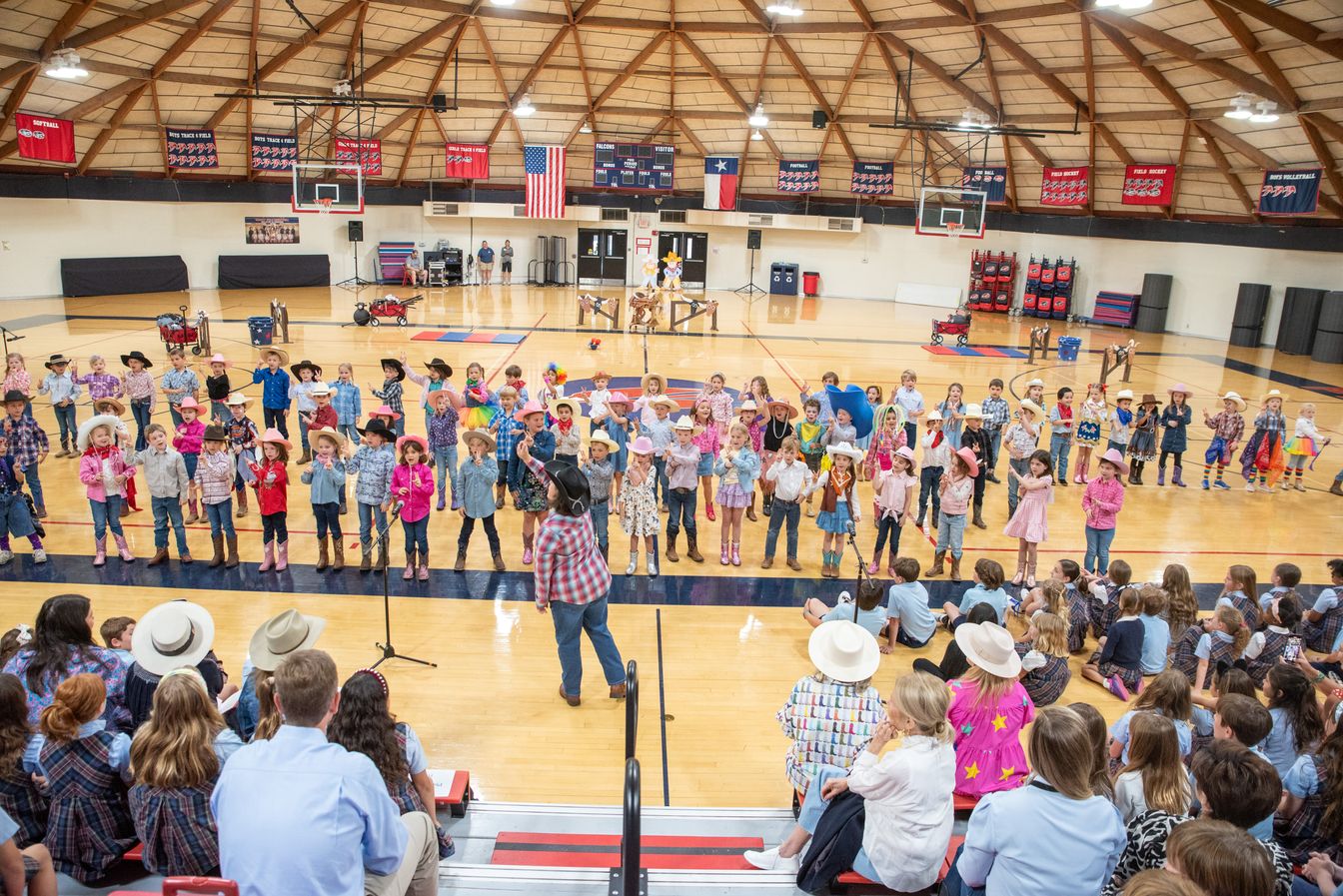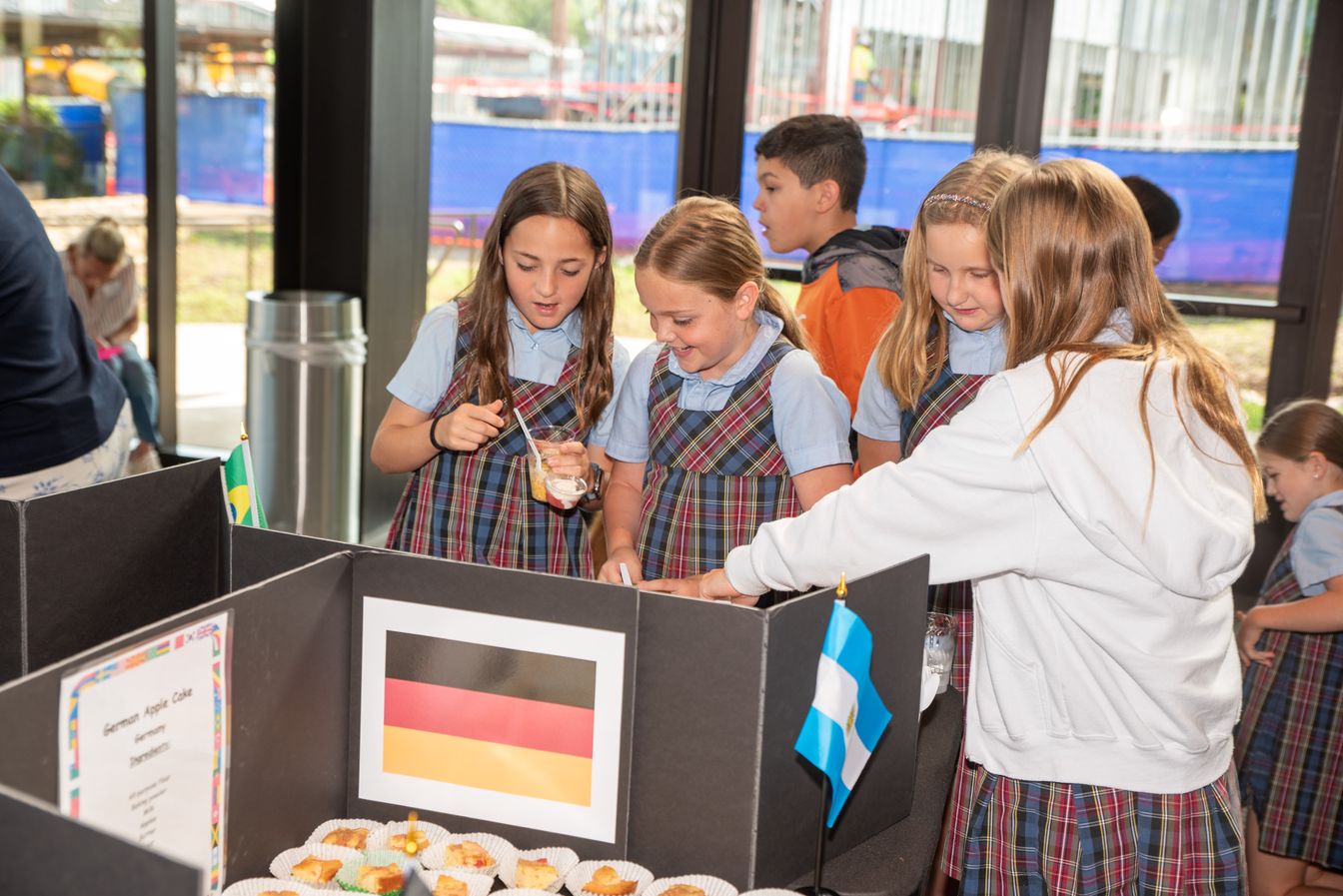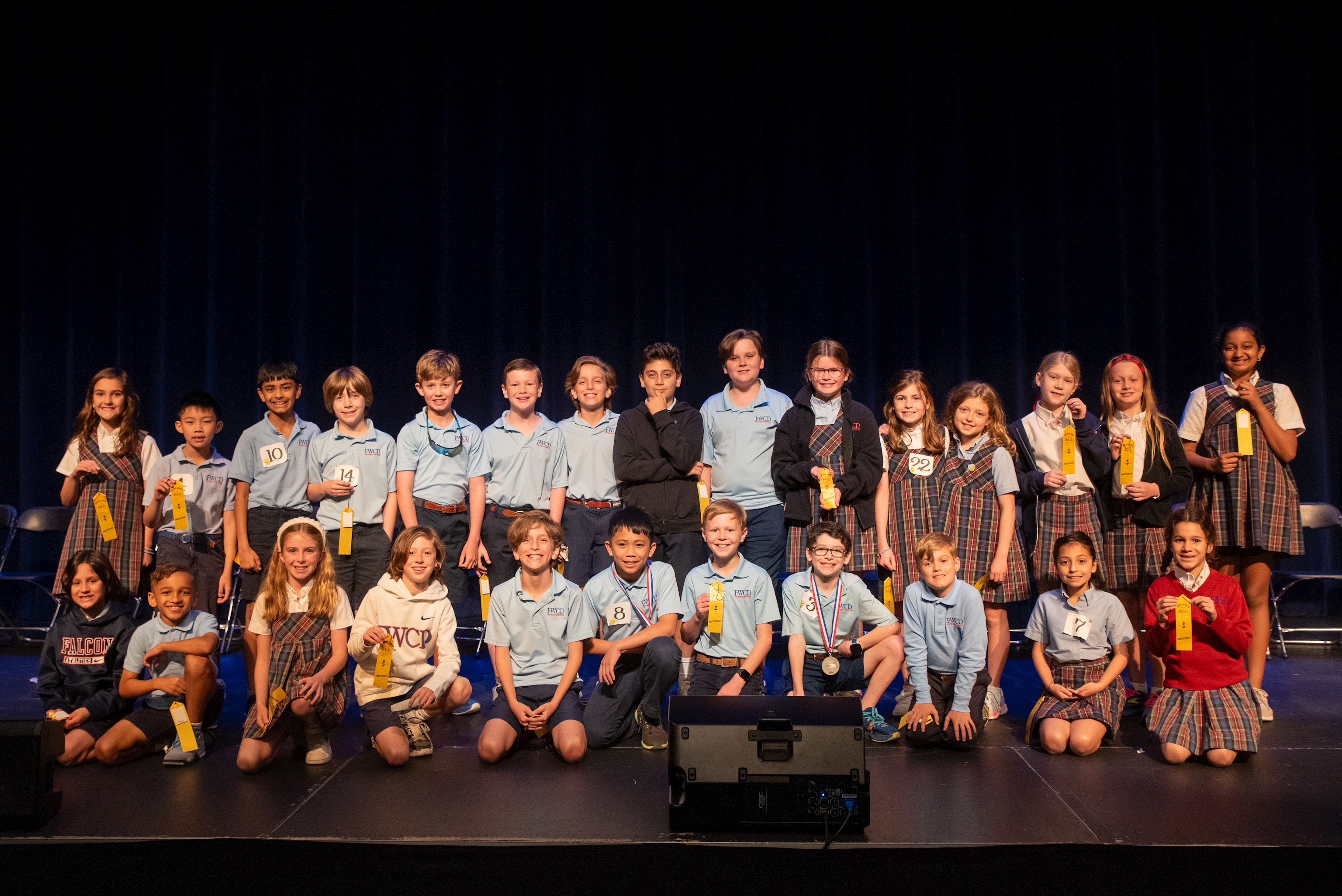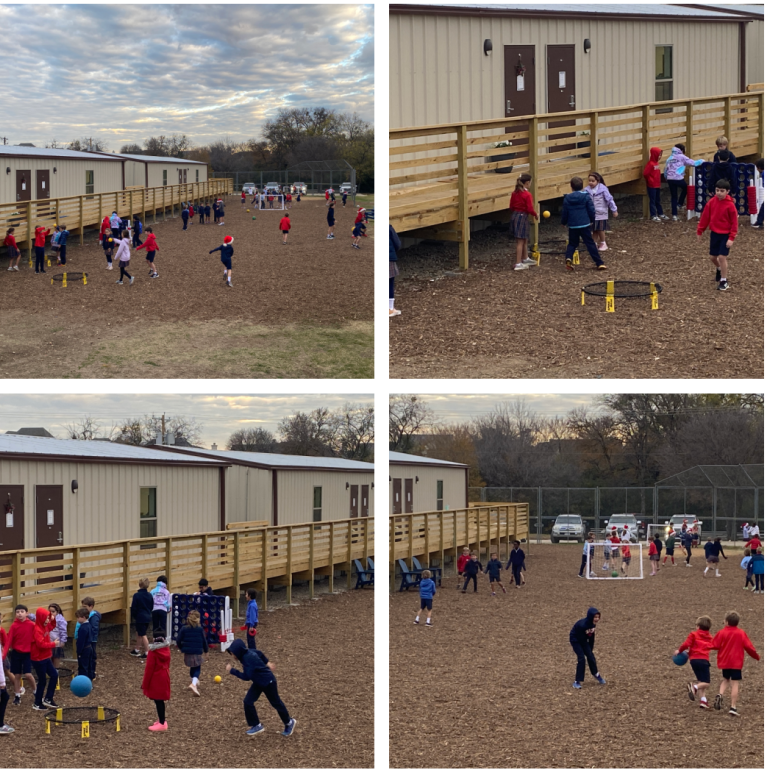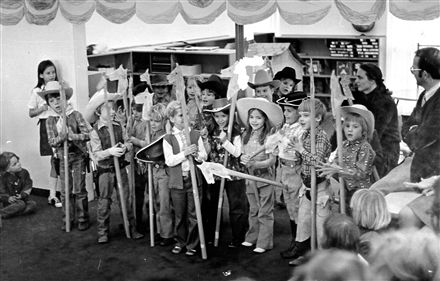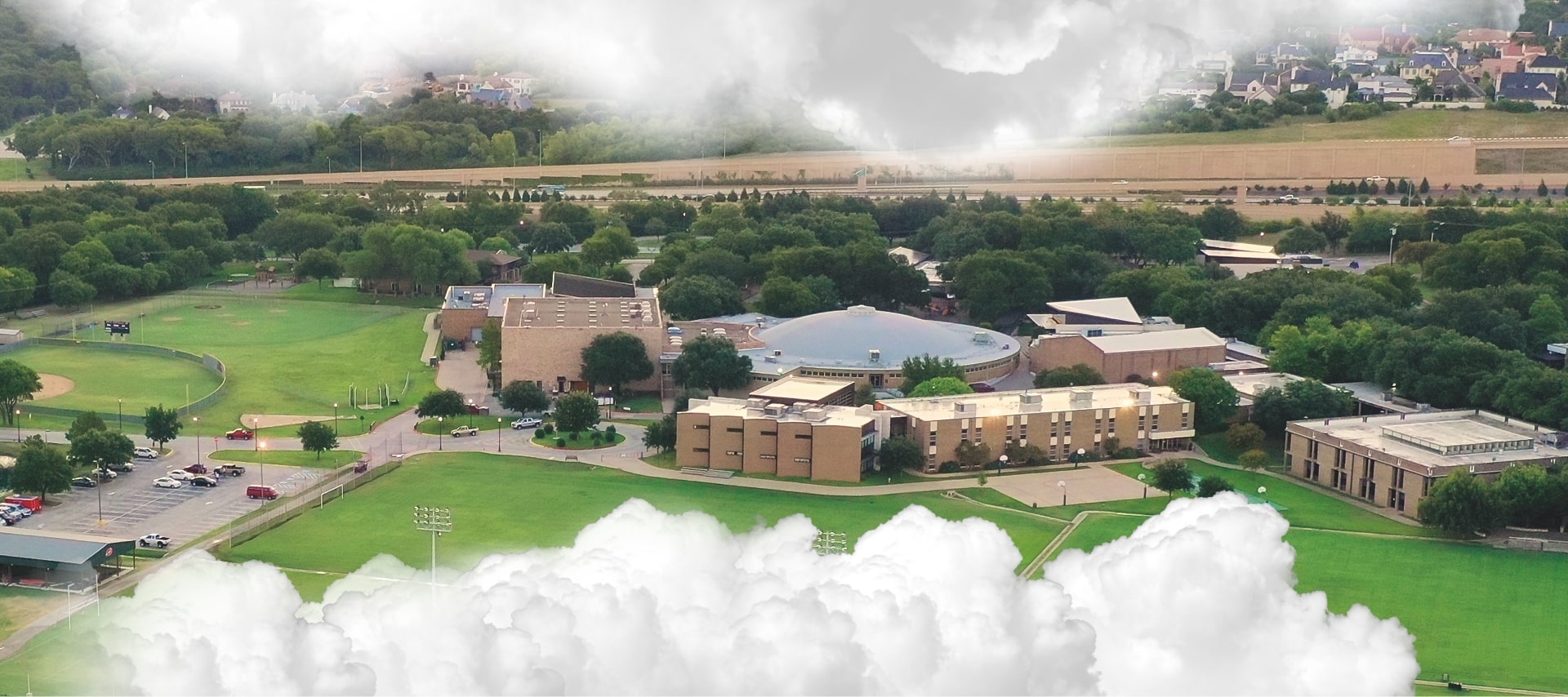Happy Birthday to the K-Rodeo
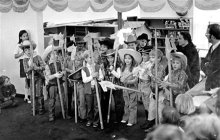
It’s the big five-zero for the Kindergarten Rodeo this year. The Class of 2031 will be performing this time-honored tradition three times this year for different audiences on Thursday, January 24, and Friday, January 25. One performance is designated for the Class of 2019 and former faculty and alumni, and it will be followed by a special alumni and former faculty luncheon in the Lou and Nick Martin Campus Center.
The K-Rodeo and it is affectionately known, began in the 1968-69 academic year. Then Kindergarten Teacher Melinda Miller created the program. She tapped Dan Bloch H’06, Middle School Science Teacher, to play the banjo when she saw him playing for his class one day. Bloch embraced that role in the very first rodeo, playing “Deep in the Heart of Texas.” He played for the morning and afternoon kindergarten performances. The performances took place in the advancement area of the Schwartz Administration Building, which served as the kindergarten classroom. Bloch recalls that there were only a few rodeo events done silently – bucking bronco and steer wrestling – in the show and they lasted much longer than today’s events because Miller did not blow a horn to end competition. He loved the rodeo so much that he offered to also play background music the following year. Miller said yes.
Now, for the 50th year, Bloch will reprise his role wholeheartedly as the banjo player for the Class of 2031. While “Deep in the Heart of Texas” remains a staple from year one, the rodeo program has evolved over the years. “The K-Rodeo was initially only a performance for parents because of limited space,” Bloch said. He recalls the rodeo being shared with fellow Lower School students in the mid-1970s, and that during the 1988-89 academic year, half-day kindergarten ended, and there were four kindergarten teachers for the very first year. That original foursome was Miller, Barbara Meyers, Eileen Kelly and Janice Richardson.
The rodeo events are unchanged from those early days. The bucking broncos and steer wrestling were the main events. Calf scramble was an early addition. “Bull riding was instituted when the teachers discovered those big rubber balls with handles,” Bloch said. The number of events expanded when the number of kindergarten classes grew to four. Today’s rodeo events are steer wrestling, trick roping, bareback bronc riding, cutting horses, calf roping, calf scramble, barrel racing and bull riding.
The music portion of the program expanded with Christine Derber, who served as Lower School Music Teacher at FWCD for 30 years. For years, the rodeo featured “Deep in the Heart of Texas” and banjo accompaniment during the events. Derber added a more pronounced music component, which includes “The Star Spangled Banner,” “Oh I am a Cowboy,” “I am a Texas Star" and “Deep in the Heart of Texas.”
The presentations are now far more elaborate and polished—even providing the opportunity for solos. “Even now, so many years later, I have a wonderful time playing for the rodeo,” Bloch said. “I try to pace the music to the event. I have some songs that I play every year and some that I throw in off the top of my head. I’ve even been known to throw in a Beatles or Dylan tune every once in a while. It all seems to work, and the rodeo is well received each and every year. For me, the Kindergarten Rodeo is an opportunity to begin developing relationships with the kindergarteners that can last another 12 years.”
This year is extra special for Bloch: His granddaughter, Eliana Montgomery, is a kindergartener.
Who knew in 1969 that students would be performing in the Kindergarten Rodeo 50 years later? Miller’s idea has become a unique and treasured part of Country Day life. “When you think about the concept, you have to be struck by the ingenuity of the idea,” Bloch said. “When I reflect on all the presentations I have seen over the years, both as a teacher and as a student in a private school, most of the performances put on by young children followed a very similar format: Children would stand in rows and sing songs or recite a verse in unison. The more introverted children would simply mouth the words—and some wouldn’t even do that—while the less inhibited would dominate the stage with their personalities.
“Mrs. Miller was a rare individual who realized that the reticent child would only perform in a non-threatening situation,” Bloch continued. “The Kindergarten Rodeo became the perfect venue. In this program, there is room for the rambunctious cowboy or cowgirl to explode across the room, while providing the opportunity for the meekest to prance daintily in a controlled manner. Personalities are clearly expressed without any intimidation. No student is forced beyond his or her own comfort zone, which makes this event a hit with children as well as parents. It has been interesting for me to see what the wild bull rider or timid rope twirler in kindergarten grows into by the time they reach me in fifth grade. Usually, the personality trait remains to some degree.”
Though the K-Rodeo has become more stylized with props and backdrops, the program itself remains well-structured and is utterly beloved. The essential element: Students are free to express themselves. “It was a great privilege to work with someone like Melinda Miller early in my career,” Bloch said. “Her insight into the minds of young people helped me to form my own approach to teaching. I’m glad that the Kindergarten Rodeo continues to be true to the genius of a great teacher.”
This year’s performances are as follows:
Thursday, January 24 | 8:30 a.m.
Dress Rehearsal – Students will perform for Lower School peers
Friday, January 25 |8:20 a.m.
Students will perform for parents
Friday, January 25 |10:30 a.m.
Students will perform for the Class of 2019 and alumni and former faculty
